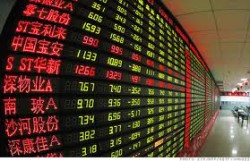Key things for China based Expats
Posted on April 22, 2014 For expatriates in China some things are more important than others. For example, these can include:
For expatriates in China some things are more important than others. For example, these can include:
1. The exchange rate of the RMB.
2. The health of the Chinese economy.
3. The health of the Chinese property market.
4. The prospects for the Chinese stock market.
In all of these areas, we have some opinions and in most cases, there are interesting things worth reflecting on.
The RMB – Now Falling
The RMB was one of the most consistent one way bets in finance. That “was” denotes past tense though. You can no longer bank on a consistent 5-8% per year appreciation of the RMB and that easy money compared to the US dollar is now over. Probably for good. So if you need to invest in something consistent, the RMB is no longer your best bet.
The Chinese Economy
The Chinese economy and its health is more heavily debated and watched than almost anywhere, except the United States. Being the second largest economy in the world will do that. The majority of our clients are China based and usually CEO’s or senior long term expatriates
The Chinese property market – Showing signs of strain
The property market does seem to be coming off the boil. Hangzhou developers for example have started giving bigger discounts to encourage sales. Beijing property turnover has recently dropped to a 6 year low. Other cities also seem to be slowing, even according to official statistics which in our experience seem to have a considerable lag effect. If you have property and are happy with the price, we think it could be time to sell.
 We think time to sell
We think time to sell
The reason being is that property in China is expensive by any measure. Price to rent, price to income, price to GDP. Don’t forget that all Chinese property is leasehold as well, so effectively, at best, you are leasing your property for 70 years. Each year that disappears from that lease should see a corresponding decline in the residual value. Furthermore we believe the Chinese government will put in an annual or regular property tax to fund local governments. This combined with the loss of confidence effect of lower prices could take a while to unwind. We don’t get the sense the government is in any hurry to stimulate the economy like they did in 2009.
So yes, we think, if you have made a good gain. Now is an excellent time to cash in your chips and look for another table to play.
The Chinese Stock Market
We have to confess we have been disappointed here. Whilst we got our call about the RMB not getting past 6 to a US dollar correct, our forecast for the Chinese stock market has been disappointing with directionless trade for the last 12 months.
Is that likely to change soon?
We aren’t sure. There are good signs to be sure. The talk about the FTZ (free trade zone) in Shanghai is encouraging. So is the impact Alibaba and Yu’e bao has had forcing the Chinese banks to compete. Foreign investment quotas have been lifted. Did you know that as a foreigner, you can now buy Chinese mutual funds from your local bank that invest in the market? The reform intent seems to exist, but as yet, it still remains underwhelming for us and the market.
What’s going on?
 Still, we can’t help get the feeling that the Chinese leadership’s priorities are elsewhere and stock market reform is further down the priority list. We think reining in the power of the SOE’s, consolidating power, cracking down on corruption and cleaning up the environment are more immediate priorities for the leadership. That’s a pretty daunting and demanding laundry list right there. We do think there will come a time for the Chinese stock market to play a role in providing a funding mechanism to the Chinese economy. However many reforms remain to get to that point and that takes time.
Still, we can’t help get the feeling that the Chinese leadership’s priorities are elsewhere and stock market reform is further down the priority list. We think reining in the power of the SOE’s, consolidating power, cracking down on corruption and cleaning up the environment are more immediate priorities for the leadership. That’s a pretty daunting and demanding laundry list right there. We do think there will come a time for the Chinese stock market to play a role in providing a funding mechanism to the Chinese economy. However many reforms remain to get to that point and that takes time.
In short, there is potential, but it could be another 1-2 years before the Chinese market get’s any tough love of the reform kind from the Chinese authorities. It could even be longer. The thing to watch would be a better rate of listing in China versus overseas, a free (or much freer) flow of foreign investment and just a little excitement amongst the locals. I can’t really think of any local I’ve met in years that is interested in the Chinese market. All locals are heading overseas.
The opportunities are overseas
This may seem like one big self-justifying advertorial, but although there is truth to this, we do truly want China based expats to look overseas for opportunities. Whether that is through us or someone else, is less important, as long as you remember a few key things.
- Make sure you understand exactly how your adviser is paid. Calling yourself “transparent” or “independent” doesn’t make it so. It is the doing, that counts.
- Be careful of “guaranteed” investments with minimal or no volatility. These often “stabilize” returns and if you can manipulate them to stabilize them, you can manipulate them upwards (which is fraud) and a very dangerous game likely to end badly.
- Bonds, particularly treasury bonds, are likely to get hurt in coming years with rising interest rates, so worth staying away from this part of the asset allocation for the moment.
- Educate yourself. We wrote an article on how to get educated in investing for yourself.
Or read our article on what expatriates must know. That’s not a bad place to start either. But don’t sit there in RMB cash hoping for it to start rising again. “Hoping” isn’t really an investment strategy that’s going to get you to an early retirement.
About Caterer Goodman Partners
Caterer Goodman Partners is a Shanghai based wealth management firm established with a clear vision to provide a new level of personalized financial planning services for expatriates in Asia. Our financial advisors provide guidance for our clients in all areas of investment, specialising in managed accounts, money-market funds, retirement planning and alternative investments. At Caterer Goodman Partners, we offer our advice and experience to provide low cost, tax-effective and simple solutions to match our clients’ interests.
About Owen Caterer
Since graduation Mr Owen Caterer has worked with the Queensland Premier's Department in Trade Facilitation and then as a financial adviser in Shanghai from 2005 until 2010. He then rose to Senior Adviser, then Business Development manager and then to Chief Investment Officer responsible for portfolios to a value of US$280 million across Asia. Following that Mr Caterer left to found his own firm with a partner in the financial advisory and wealth management area. This focused on developing China and Asia's first fee-based financial advisory (rather than commission-based). This has grown to now have 8 staff and and managing almost US$35 million for clients throughout Asia. This business success was recognized as a finalist in the 2013 ACBA in the Start Up Enterprises category and are one of a small number of foreign managed firms to have a full asset management license in China. Owen has also been active in the community volunteering for the Australian Chamber of Commerce in Shanghai and acting as the Vice-Chair of the Small Business Working Group (2012-2014) and as the Co-Deputy Chair of the Financial Services since 2013 until the present. They have continued to grow their business and have now been selected as a small group of companies who are platinum members of the Australian chamber of commerce. The achievement they are most proud of is their efforts to reform the financial planning industry in China and push it away from a hard-sales commission driven model to a more ethical management fee and long term customer service model. Owen has a Graduate Diploma of Applied Finance from the Securities Institute of Australia of which he was a member as a Fellow of Finance for many years and also has an undergraduate degree from Griffith University in International Business. Owen's interests are tennis, running and his wife and two children. He speaks fluent Chinese, first arriving in China in 1997.
Tags: Caterer Goodman, China, China Expat Money, Chinese economy, Expat, Financial Advisor, Foreigners, Investment, Owen, Owen Caterer, Shanghai, Tips
Categorised in: Emerging Markets, Financial Advice, Investing in China, Investments

